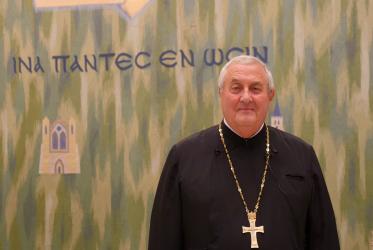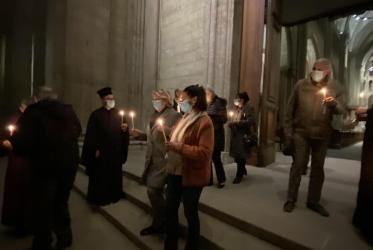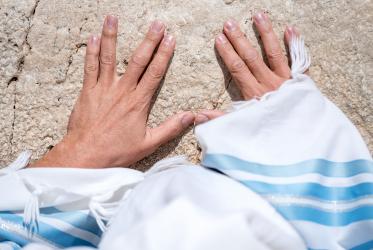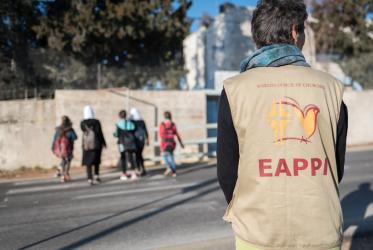Displaying 1 - 13 of 13
The ecumenical spirit at Calvin’s Cathedral
24 February 2021
WCC condemns attack at Hanukkah celebration in New York City
29 December 2019
WCC pulls accompaniers from Hebron due to security concerns
29 January 2019
WCC gravely concerned over Israel’s travel ban
09 March 2017
WCC general secretary reflects on peace in Palestine and Israel
20 September 2016
World Social Forum sows seed of hope in global north
17 August 2016
Panel discussion fields ideas on European identity
26 April 2016
Churches say “No more violence in the name of God”
05 March 2012










